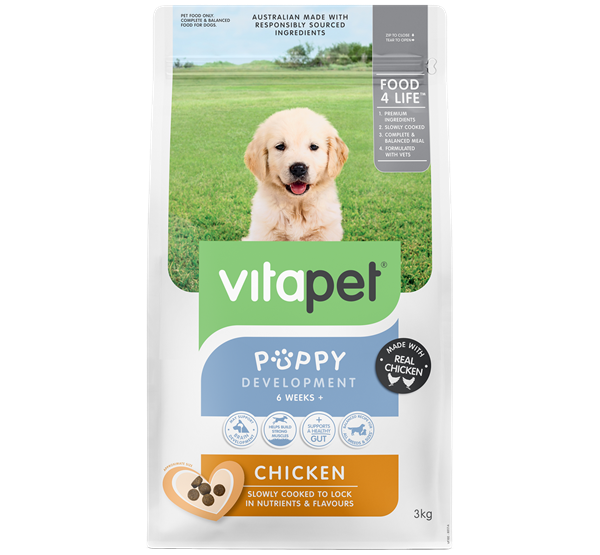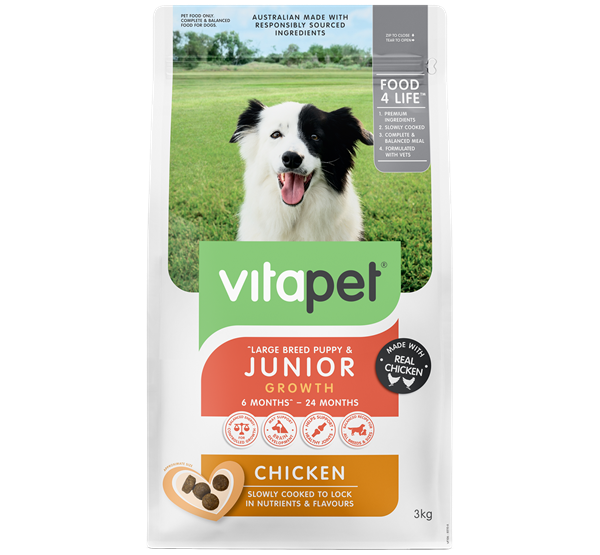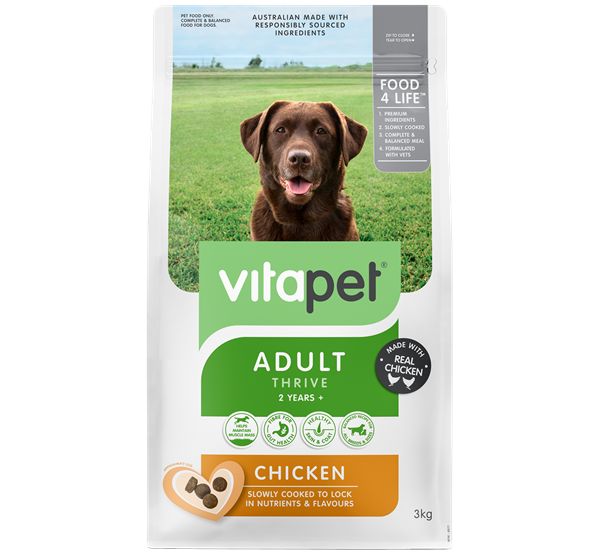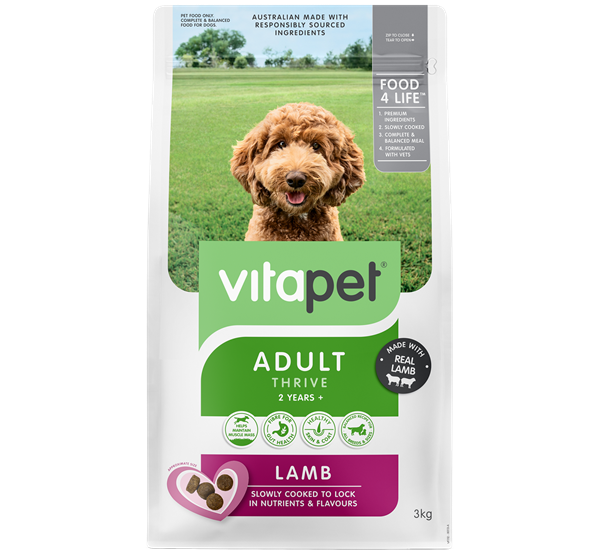Puppies can bring so much joy to our lives, and grow so fast. Particularly during the first 12-18 months of life they pass through several important stages of development. Understanding these different milestones and how to respond to each will ensure your pup has the best start in life.
1. The first few weeks
During its first few weeks of life (typically up to 8 weeks), a puppy should remain with its mum and siblings. Not only is its mother’s milk important for a pup’s digestive needs (ensuring it gets the right macro and micro-nutrients), it also offers the strongest defence against any ‘nasties’.
Veterinarian Dr Evan Shaw highlights that it’s the maternal antibodies that keep puppies safe in their first six weeks of life.
“Vaccinations won’t actually be effective before then, as the pup won’t be able to make their own antibodies yet. So, without their mother’s milk, they are more susceptible to diseases and parasites.”
2. Kicking off vaccinations and parasite treatment
Once a puppy is old enough to have vaccinations (at around eight weeks), it’s important they receive them promptly and complete a full course of injections. Missing a vaccination by even a week could lead to complications.
Dr Shaw explains: “Your vets will have a vaccination protocol that will usually start at eight weeks and then be repeated twice more, every four weeks. A pup will then have further boosters throughout their lives, according to the vet practice’s approach and each dog’s needs.”
Puppies are also extremely susceptible to worms in their first six months, so worming should generally take place every two weeks until they are 12 weeks old, then monthly up until six months of age.
Fleas and ticks can also be even more dangerous to a young dog, which is why monthly flea and tick treatments from eight weeks are just as important as vaccinations. Always speak with your vet on best approach, and thoroughly read the dosing instructions for your chosen product.
3. The socialisation period
Another important milestone in your puppy’s development is socialisation with other dogs. Although there is some debate about the optimal period for socialisation, most specialists agree that it extends from birth to between 12 and 16 weeks of age.
“Their core behaviour is best influenced during this time. This doesn't mean you should stop exposing your puppy or older dog to new experiences after this age, it just means they may be a little warier without early, positive and heathy interactions,” Dr Shaw cautions.
Attending puppy pre-school or taking your puppy on walks through busy areas frequented by other dogs can have a positive impact on its overall demeanour and happiness, particularly when combined with daily training. Dr Shaw advises that while dog parks can be a great way to socialise your pup, there might be a chance your little one may still be vulnerable to picking up diseases from other dogs. So, it can be a good idea to avoid taking your puppy to a busy dog park until they have finished the vaccination course mentioned above (usually at about 17 weeks).
What does Puppy Socialisation Mean?
Socialising your Puppy to Everyday Things
4. Changing nutritional needs
Proper nutrition is vitally important to ensure the healthy growth of not only your puppy’s body but also their brain. High-quality food and milk that’s specifically formulated for puppies need to be provided in suitable portions and at the correct time of day. Compared to adult dog food, puppy food contains specific proteins, essential amino acids, vitamins and minerals that are necessary for a growing dog.
“Different breeds of different sizes have different requirements, so your vet is the best person to monitor their growth and make sure they are on track,” Dr Shaw explains.
“If I could give one piece of advice that will have the greatest effect on their lives, it would be to weigh their food every day,” he says. Why? “Everyone has a different idea about what size a ‘cup’ is, and everyone has a different idea about what one half, or one third of a cup is.”
Weighing scales (e.g. digital cooking scales), on the other hand, are objective. Feeding your puppy too much or too little can have a dramatic effect and potentially affect their life expectancy, as well as contribute to some chronic diseases down the track.
Puppy development vs human development
The old adage of ‘one human year is equivalent to seven dog years’ has been proven to be inaccurate. Development rates vary between small and large breeds, but if you’re looking to understand ageing in your puppy, this guide might help:
- A six-month-old dog might be compared to a 12 to 14-year-old child
- A 12-month-old dog is more like a young adult
- An 18-month-old dog is closer to a 25-year-old person
From then on, depending on their breed and size, a human year equates to roughly three to five dog years.
Even though there are similarities between the growth of children and puppies, the main difference is the length of time between their developmental milestones. Dr Shaw says,
“Obviously for a puppy, growth is a lot quicker and our need to stay on-track with their medical needs and healthy development is all the more important, and challenging.”
Staying on top of your pet-parental obligations and care is crucial to your long and happy lives together.























